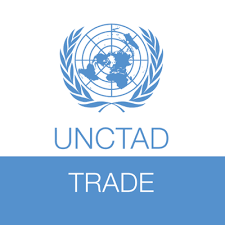The United Nations Conference on Trade and Development (UNCTAD) has reported that the value of merchandise trade rose slightly in 2021, though it remained below the pre-Covid pandemic levels.
The UNCTAD Handbook of Statistics 2021 shows that there was a strong increase of 22.4 percent in the value of global merchandise trade this year compared with 2020.
According to the trade agency, the strong growth will push the value of world trade in goods about 15 percent higher than before the Covid-19 pandemic.
“Global merchandise trade recovered fast, exceeding its pre-crisis level by the end of 2020,” it said.
For global services trade, the recovery path seen in the first six months of 2021 was expected to continue strongly into the third quarter of 2021.
“The trade in services, however, will still fall short of pre-pandemic levels despite the 13.6 percent growth for 2021, after a deep contraction recorded in 2020,” UNCTAD said.
The report does not reflect the potential impacts of the new Omicron variant.
In the data released this month, South Africa led in exporter country rank by value, with an annual growth rate of -4.6 percent followed by Morocco (-6.8 percent) and Nigeria at -43 percent.
Travel was severely affected, shedding an immense 63 percent in 2020 and strongly upsetting tourism-oriented economies.
International transport sales passengers and freight dropped by 20 percent while exports of business, intellectual property, financial and insurance services showed more resilience.
Meanwhile, trade in telecommunications, computer and information services continued growing throughout the pandemic, except in Africa.
The annual report presents the statistical landscape for 2020 through a wide variety of statistics relevant to international trade, investment, maritime transport and development. It also depicts developments in 2021 through data-led projections, known as nowcasts, for now and the immediate future.
“Reliable and timely data are in high demand as Covid-19 puts unforeseen pressure on decision makers, who are scrambling to get a handle on the pandemic-affected economic landscape. These statistics are needed for evidence-based policy responses to the pandemic,” said UNCTAD’s acting head of statistics, Anu Peltola.




